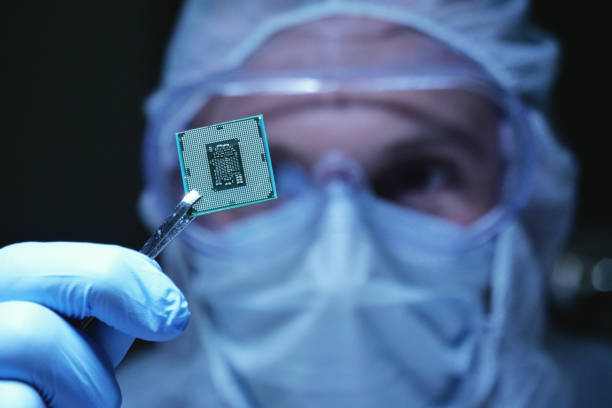Shaping the Future: Advancements in Nanotechnology in Industrial Operations
The microscopic world of nanotechnology is making a macroscopic impact in industrial operations. This article delves into this intriguing sector, examining its development from inception to its current state, as well as its implications and potential in industrial practices.

Nanotechnology: A Brief History
Nanotechnology, the manipulation of matter at an atomic and molecular scale, has a rich history dating back to the 1950s. The concept was first suggested by renowned physicist Richard Feynman in a talk titled “There’s Plenty of Room at the Bottom.” Feynman proposed the idea of manipulating individual atoms and molecules, thus laying the groundwork for nanotechnology. By the 1980s, advancements in technology made it possible to observe individual atoms through scanning tunneling microscopes, propelling nanotechnology into a new era.
Current Trends in Nanotechnology
Today, nanotechnology has evolved into a multidisciplinary field, involving physics, chemistry, biology, materials science, and engineering. It has found applications in various sectors, from electronics and healthcare to energy and environmental protection. In industrial operations, nanotechnology is being used to enhance materials, improve processes, and create innovative products.
The Impact of Nanotechnology in Industrial Operations
Nanotechnology has several benefits in industrial operations. It can improve the performance, durability, and energy efficiency of industrial materials and systems. It also has the potential to generate new products and processes that could revolutionize various industrial sectors. However, the use of nanotechnology also presents certain challenges, including health and environmental risks, regulatory issues, and ethical considerations.
Case Studies: Nanotechnology at Work
Several industries have begun to leverage nanotechnology for operational advantages. For instance, the automotive industry uses nanotechnology to create lighter and stronger materials, leading to increased fuel efficiency and safety. Meanwhile, the food industry uses nanotechnology to enhance food quality and safety, as well as to develop innovative packaging solutions.
Key Takeaways from Nanotechnology in Industrial Operations
- Nanotechnology can enhance the performance and energy efficiency of industrial materials and systems.
- It can generate new products and processes that could revolutionize various industrial sectors.
- However, it also presents certain challenges, including health and environmental risks, regulatory issues, and ethical considerations.
Conclusion
Nanotechnology is a powerful tool that holds immense potential for industrial operations. While it does present certain challenges, responsible and thoughtful application of this technology can yield significant benefits. As we continue to explore the possibilities that nanotechnology presents, it’s clear that this microscopic world will have a macroscopic impact on our industrial future.




